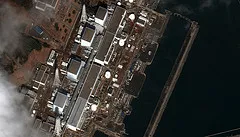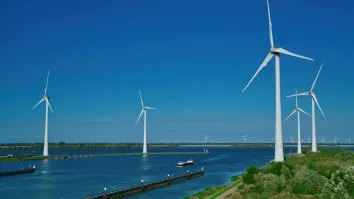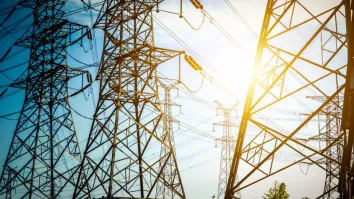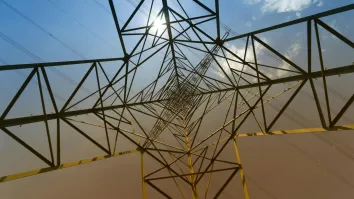
Japanese minister forced out after joke on radiation
Yoshio Hachiro stepped down as head of the Ministry of Economy, Trade and Industry after calling the evacuation zone around the Fukushima nuclear plant “towns of death”.
Japan Prime Minister Yoshihiko Noda’s effort to win public support for restarting nuclear reactors faces a setback after his minister in charge of the industry was forced to resign just nine days into the job, according to a Bloomberg report.
Yoshio Hachiro stepped down as head of the Ministry of Economy, Trade and Industry on Sept. 10, under fire for using “towns of death” to describe the evacuation zone around the Fukushima Dai-Ichi nuclear plant and joking about radiation.
“Japan has had sloppy trade ministers who lack leadership,” said Minoru Morita, a Tokyo-based independent political commentator. “That post is responsible for ending the nuclear disaster and boosting the economy,” Morita said. “We need strong leadership there.”
Noda, 54, was elected Aug. 30 as the country’s sixth leader in five years, inheriting a fractured political party and the world’s biggest nuclear crisis since Chernobyl 25 years ago. Faced with threats from business leaders to move factories overseas unless stable power supply is assured, Noda has tried to convince the public that despite the Fukushima crisis, atomic power is needed to save the economy.
“Noda’s attempts to win over the public about atomic power may not go smoothly,” said Morita, in commenting on the effect of Hachiro’s performance.
Former Chief Cabinet Secretary Yukio Edano will replace Hachiro as head of the ministry known as METI, which oversees Japan’s nuclear industry, public broadcaster NHK reported this morning, without saying where it obtained the information.
Revolving Again
Since breaking the Liberal Democratic Party’s half-century grip on power two years ago, Noda’s Democratic Party of Japan has seated three prime ministers and four finance chiefs, while other Cabinet officers have been forced to step down for inappropriate remarks.
Hachiro came under criticism for his comments and actions during a visit to Fukushima on Sept. 8 to inspect progress in recovery from the nuclear crisis.
At one point he rubbed the sleeve of his protective coverall against a reporter saying, “Do you want some radiation?” local media including the Nikkei newspaper reported Sept. 10.
“Disappointed, that is the only word I can say,” Goshi Hosono, minister in charge of the response to the Fukushima nuclear crisis, told reporters yesterday when asked about Hachiro’s resignation. “We don’t have time for these kinds of setbacks as we try to contain the accident and set the new energy policy.”
Threat to Industry
Noda’s predecessor Naoto Kan was criticized for comments by Ryu Matsumoto, who quit one week into the job of reconstruction minister after publicly chastising the governor of tsunami- devastated Miyagi prefecture for being late to a meeting.
Matsumoto ordered the media present not to report the incident, before a video of the exchange was posted on the Internet.
Japan’s March 11 earthquake and tsunami caused the meltdown of three reactors at the Fukushima plant, leading to radiation leakage and the evacuation of almost 160,000 people in a 20- kilometer (12-mile) zone. The earthquake and tsunami left almost 20,000 people dead or missing.
Nuclear power provided about 30 percent of the electricity in the world’s third-biggest economy before March 11. About 80 percent of Japan’s 54 reactors are now offline, with more shutting for scheduled maintenance in the months ahead.
Industry leaders have said they may shift production overseas if power supplies aren’t stable, threatening an economic recovery. Japan’s gross domestic product shrank at an annualized 2.1 percent rate in the three months ended June 30, the Cabinet office said Sept. 9.
Nuclear Opposition
With the majority of opinion polls showing Japan’s public opposes nuclear power, Noda needs to convince his electorate so- called stress tests of reactors will make them safe to restart.
Sixty-eight percent of respondents to an Asahi newspaper poll published on Aug. 8 said they wanted Kan’s successor to continue his policy of phasing out atomic energy.
Noda’s approval rating was 65 percent in a poll published Sept. 4 by the Yomiuri newspaper, the country’s biggest. The Nikkei newspaper and Kyodo News rated his popularity at 67 percent and 63 percent respectively. None of the polls gave a margin of error.
“When Matsumoto resigned Kan’s ratings tumbled,” Morita said. “Matsumoto’s remarks were far worse than Hachiro’s, so I don’t expect a huge impact. Still, opposition parties will likely be energized and the DPJ will lose some momentum.”
Photos from DigitalGlobe-Imagery

















 Advertise
Advertise






